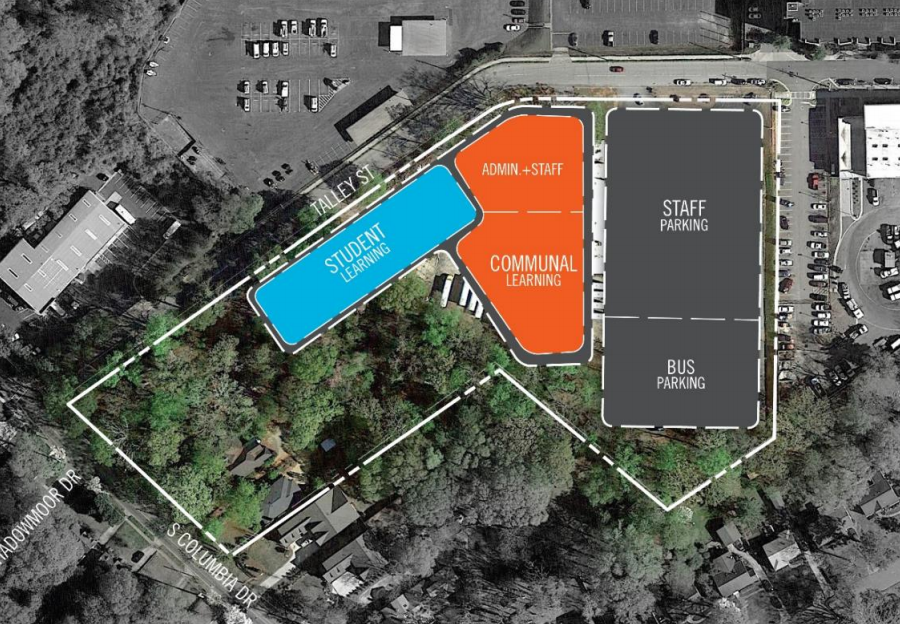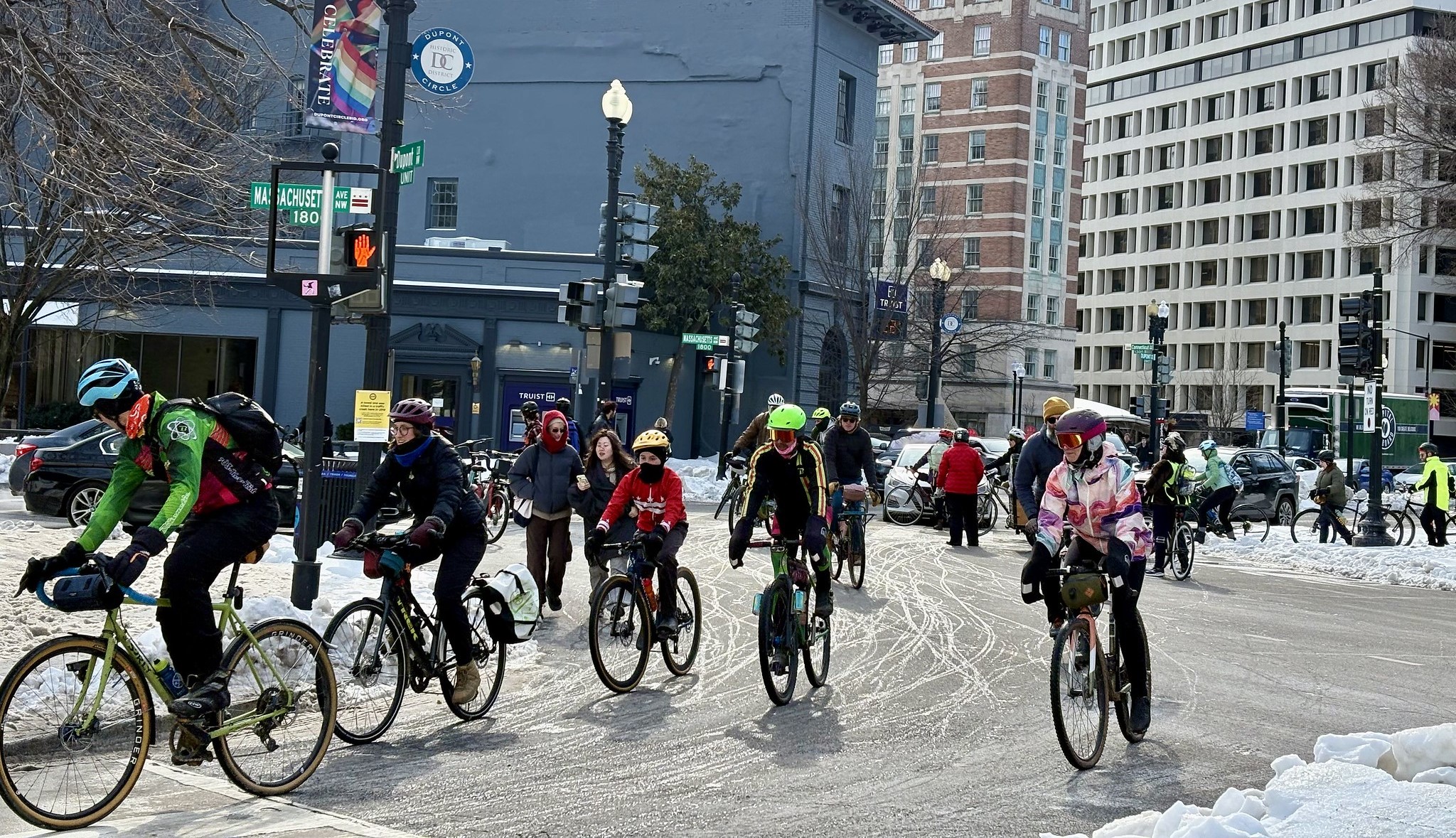Public health experts say America is failing at walkability. There's plenty of blame to go around for how inhospitable our streets and neighborhoods have become for such a healthy, basic human activity. But one under-appreciated bad actor is public schools.
Here's an example from the inner-ring Atlanta suburb of Decatur. The local government has plans on the books to encourage walking and physical activity. But those stated intentions don't square with a new public school project.
Tonio Andrade and Joe Hurley write at Decaturish that the school design is completely divorced from the goal of walkability -- a third of the land would be devoted to surface parking lots:
Part of the new design’s parking footprint is intended to store the district’s school buses, temporarily. But even so, the amount of space wasted on parking would be astounding. Around two acres would be devoted to vehicle storage. The majority of the time, this sizable parking lot would sit vacant and unused. Devoting one third of this land, prime real estate only a five minute walk away from the new Avondale MARTA Station mixed-use development, would create a mini greyfield -- an underutilized asphalt parking lot. Given the value of land in Decatur, where quarter-acre residential lots sell for more than $250,000, this parking lot represents a poor use of public funds, an implementation of backwards planning principles, and a squandering of potential greenspace. It could potentially be one of the most expensive surface parking lots in the Atlanta region.
Isn’t there a better use for our public funds and our public lands? Wouldn’t it be better to devote more land and resources to playgrounds and school facilities than to storage for private automobiles?
We call upon the City Schools of Decatur to work in concert with the city government and develop plans for a school that would better suit Decatur’s culture of walkability, livability, and visionary urbanism. We acknowledge that many of Decatur’s teachers and staff do not live close to the schools. We understand that some will need to drive to their school and will need parking. However, we believe that because the City Schools of Decatur has chosen to purchase property that is located within a five minute walk from a Marta transit station and that is also within the East Decatur Station section, which is planned for walkable, dense mixed use development, the school system has a responsibly to develop this property to promote walking, biking, and transit use. Devoting one third of the property to a parking lot does not acknowledge or respect the Avondale Livable Centers Initiative (LCI) plan or the East Decatur Station Master Plan, nor does it acknowledge or respect the future school’s very close proximity to a transit station.
It's a vicious cycle: When school design is unwalkable, that encourages more parents to drive their kids to school, which generates traffic that makes walking to school more dangerous and intimidating.
More recommended reading today: The Urbanist reviews Seattle Mayoral candidate Cary Moon's platform for biking, walking and transit. And nextSTL reports that St. Louis recently approved plans for its first "calm street."






